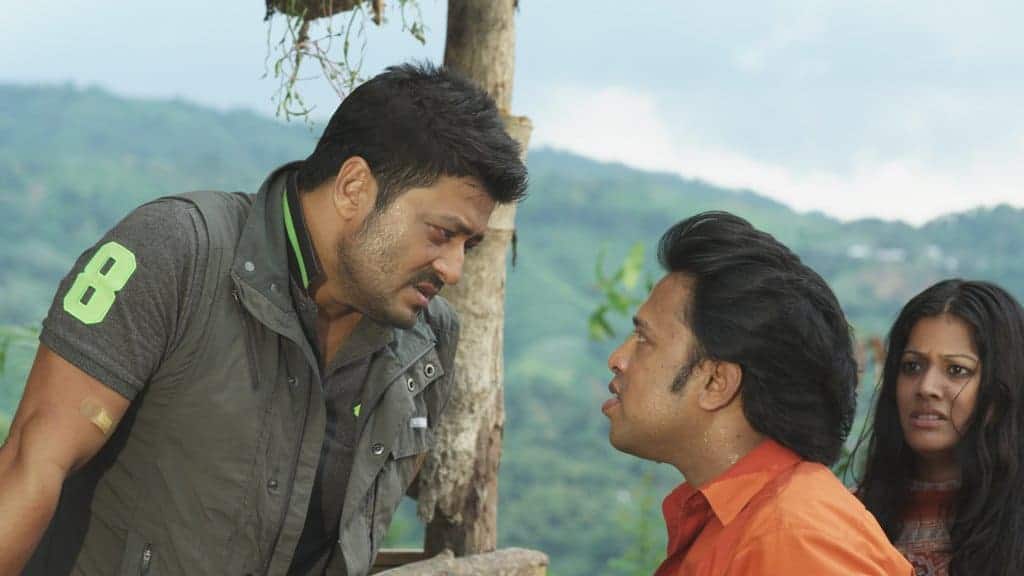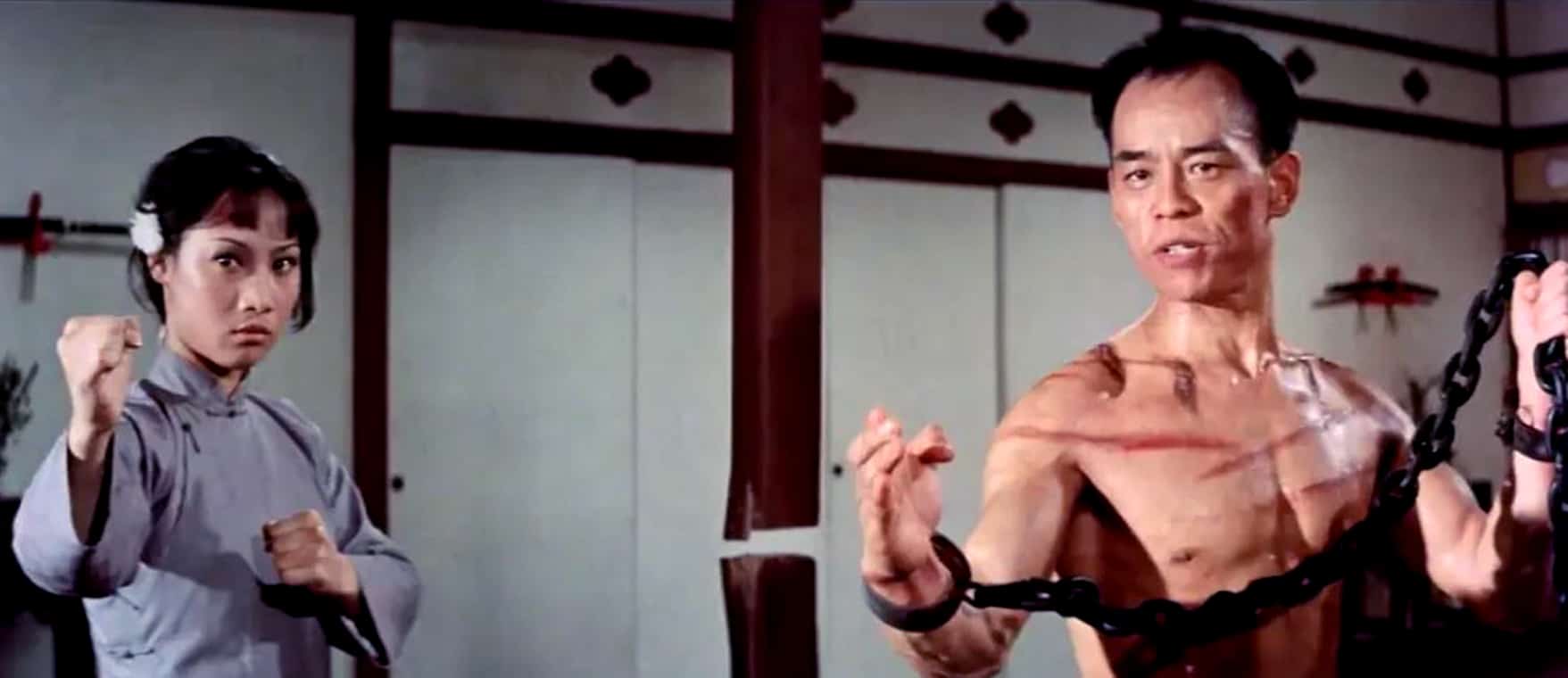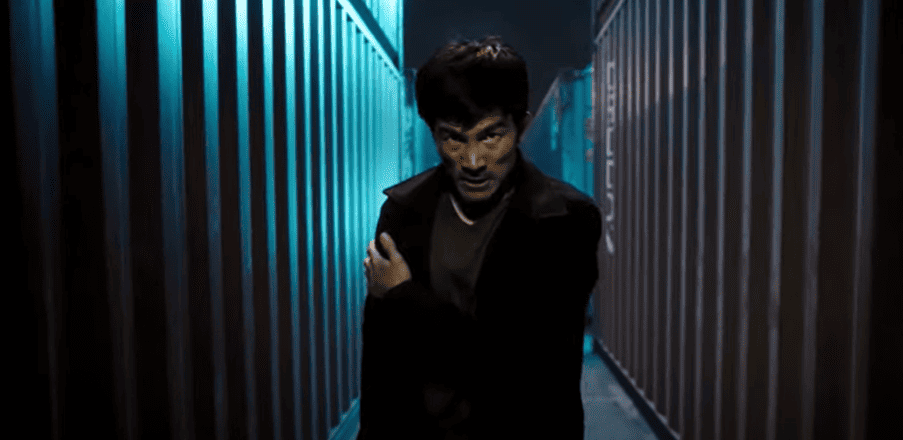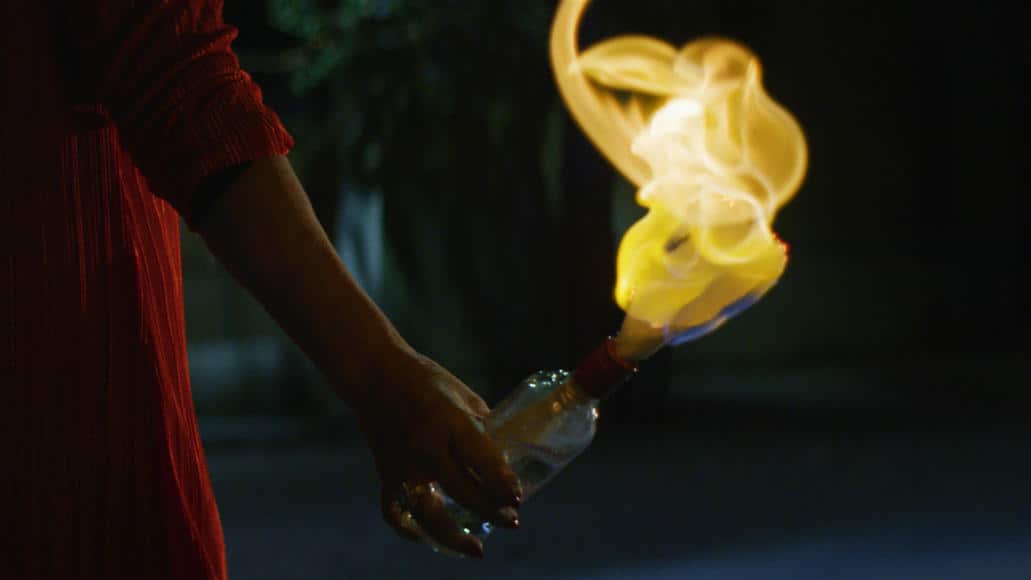Within the sci-fi genre looking at a possible future, an ideal one or a horrible one, authors and filmmakers often tackle issues about our current world or the human condition in general. Singaporean-American director Vivian Ip deals with the aforementioned concepts in her projects by “capturing intimate moments and universal truths with a cinematic edge” according to her profile of her at bafta.org. In her short feature “At the Water's Edge” she stays true to this description by talking about love, rebellion and human connection at the backdrop of a dark future for our planet.
“At the Water's Edge” is screening at New Filmmakers Los Angeles

For a very long time Jie (Kelly Choo) has been working for the Kingpin (Tay Ping Hui), a sinister man controlling the underworld where she lives. One day, she demands to be let go and be re-united with her lover (?), Mei (Lynn Chei), in order for them to start a new life far away from the dark city. Unable to convince her on staying with him, the Kingpin resorts to force to keep her under his observation, but Jie is determined to sty true to her plan.
Truthfully, there is not a lot to say about the movie's themes. Given the short running time, we are kept in the dark about the connection between the two women, who may be lovers, sisters or friends, as well as the bond between Kingpin and Jie, aside from a few hints about him being something more than the name of his character suggests. Perhaps this is the reason why Tay Ping Hui leaves much more of an impression, for his presence as the character, but also for the way he emphasizes how he controls and manipulates people. Meanwhile, Kelly Choo portrays the longing of a person set on escaping an environment which, as Kingpin states, is unfortunate and quite bleak, which is everything you can say about her character.
On a technical level, there is a lot more to “At the Water's Edge” than the minimalist story suggests. Even though a lot of the environment these characters inhabit is in the background, the noir-ish cinematography as well as Josh Wie's music create the feeling of a surreal, urban nightmare, which seems to be inspired by the vision of hell and its seven level, each assigned to a particular sin. While this premise is also very broad, the visuals alone make you want to learn more about this place and how it works.
In the end, “At the Water's Edge” gives an interesting visual impression of a dystopia, whereas the story is too minimalist to actually convince or engage.















